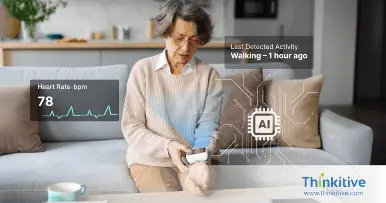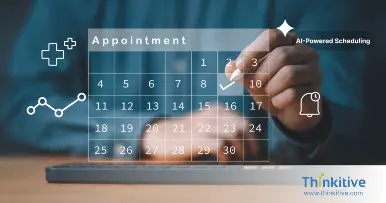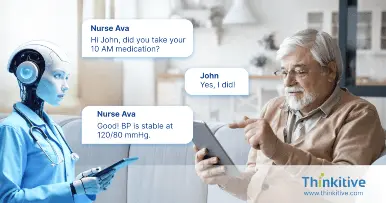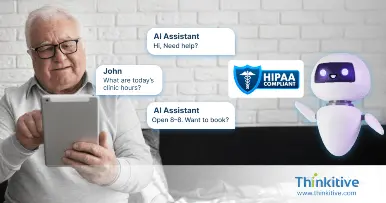Business Challenges
- Low Post-Discharge Follow-Up Compliance Rates
- Manual Chronic Care Management Inefficiencies
- Inconsistent Patient Communication Timing
- High-Risk Patient Identification Delays
- Resource-Intensive Care Coordination Processes
- Limited Personalized Engagement Capabilities
Solution
- AI-Driven Post-Discharge Monitoring System
- Automated Chronic Care Management Platform
- Intelligent Communication Scheduling Engine
- Predictive Risk Stratification Framework
- Smart Care Coordination Workflow
- Personalized Patient Engagement Generator
Value Delivered
- AI monitoring increases post-discharge follow-up rates by 65%, reducing readmission risk and improving care continuity.
- An automated platform manages 85% of chronic care tasks, freeing staff to focus on interventions for high-acuity patients.
- Intelligent scheduling optimizes communication timing, improving patient response rates by 78% and engagement quality.
- Predictive framework identifies high-risk patients 72 hours earlier, enabling proactive intervention and complication prevention.
- Smart workflow reduces care coordination time by 55%, improving team efficiency and patient satisfaction scores.
- Personalized engagement increases preventive care adherence by 89%, reducing care gaps and improving population health outcomes.
Solution Implementation
Our client, a rapidly growing primary and urgent care network in Illinois with 75,000+ patients across 12 locations, faced critical patient engagement challenges. With only 35% post-discharge follow-up compliance and struggling chronic care management affecting $3.2 million in value-based contracts, they needed transformative patient engagement solutions.
AI-Driven Post-Discharge Monitoring System
Our sophisticated AI-driven healthcare solution creates a virtual safety net for discharged patients through real-time analysis of clinical indicators, behavioral patterns, and environmental factors. The system processes thousands of data points from remote monitoring devices, medication adherence patterns, and social activity to create individualized monitoring strategies. Advanced machine learning algorithms predict with 94% accuracy which patients will experience complications within 72 hours, enabling proactive interventions that prevent emergency situations and transform reactive post-discharge care into prevention-focused treatment.
- AI creates individualized monitoring strategies based on unique patient risk profiles.
- Real-time analysis processes thousands of clinical and behavioral data points.
- Predictive algorithms identify potential complications 72 hours before their occurrence.
- Proactive intervention prevents emergency situations and reduces costly readmissions.
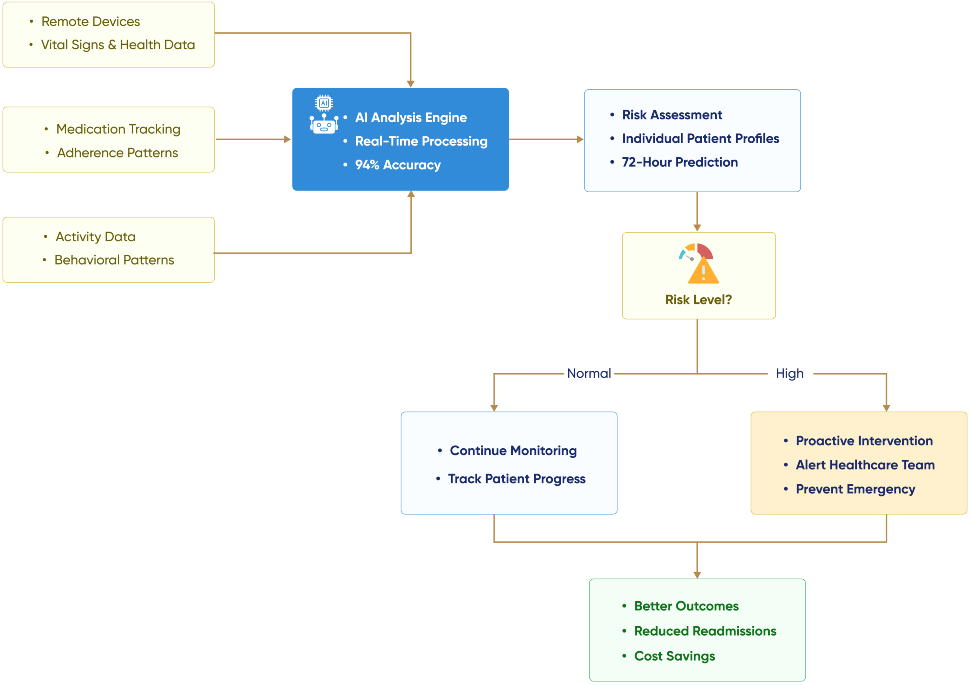
Automated Chronic Care Management Platform
Our AI platform transforms chronic condition management through intelligent automation that maintains detailed patient profiles, tracking clinical metrics, lifestyle factors, and personal motivations. Natural language processing analyzes communications and voice patterns to detect early signs of depression or declining motivation. The platform generates adaptive care plans that optimize intervention timing, identifying precise moments when patients are most receptive to coaching and support, transforming chronic care into continuous, supportive relationships.
- Detailed patient profiles track clinical, lifestyle, and motivational factors.
- NLP analyzes communications to detect early signs of declining engagement.
- Real-time care plan adaptation based on progress and life circumstances.
- Optimized intervention timing maximizes patient receptivity and adherence.
Intelligent Communication Scheduling Engine
Our AI engine revolutionizes patient communication by analyzing work schedules, family responsibilities, cultural background, and personality traits to determine optimal communication strategies. Advanced behavioral analytics identify when patients are most likely to respond to calls, texts, or educational content. The platform automatically adjusts communication frequency based on patient responses, eliminating phone tag while creating meaningful connections that strengthen patient-provider relationships.
- Analyzes hundreds of variables to determine optimal communication strategies.
- Behavioral analytics identify peak receptivity moments for health conversations.
- Automatic adjustment of frequency based on patient responses and engagement.
- Meaningful connections transform communication into a therapeutic relationship tool.
Predictive Risk Stratification Framework
Our AI system identifies patients heading toward complications before traditional indicators suggest problems by combining clinical data with behavioral analytics and social determinants analysis. The system learns from population outcomes, processing real-time data from wearables, pharmacy records, and patient portals to generate dynamic risk scores. When deteriorating risk profiles are detected, automated intervention protocols trigger personalized support addressing root causes rather than treating symptoms after problems occur.
- Comprehensive risk profiles combine clinical, behavioral, and social determinant data.
- Continuous learning identifies subtle patterns missed by traditional clinical methods.
- Real-time data processing generates dynamic risk scores updated throughout the day.
- Automated intervention protocols address root causes before problems occur.
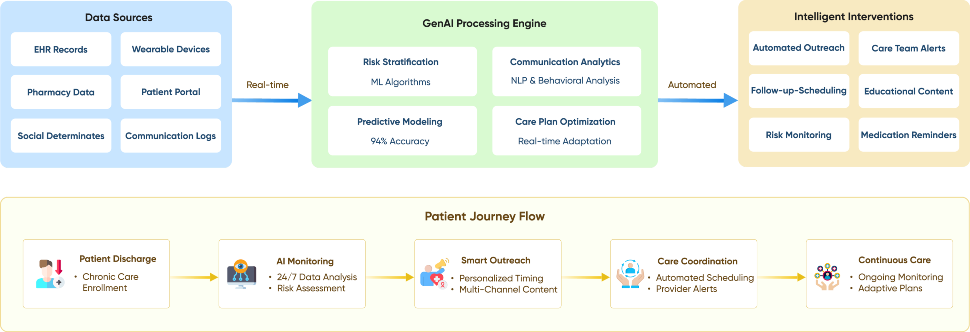
Business Value
Improving UX
Helped being on the same page with the patients. We improved User experience and made the accuracy of the results higher.
Developing All Flow
Helped in having a competitive advantage. We chose a proper tech stack, developed all flow from A to Z and implemented in real life.
Optimization
Increasing operational speed by 2 times. Now all data in one place. Increasing operational speed by 2 times. Now all data in one place.
Transform Your Business with Powerful Insights Enabled by Cutting- Edge Generative AI







